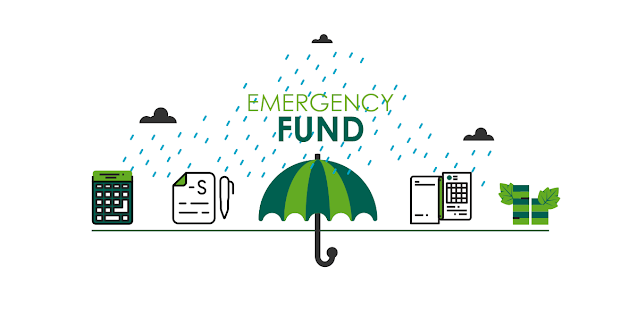You cannot afford to stay long without an emergency found after using it. Replenish it as soon as possible
Having an adequate emergency fund is one of the most important financial targets to achieve. Amid the widespread uncertainties brought about by the coronavirus pandemic, this fund is perhaps more relevant than ever. You should take steps to boost the size of your emergency fund if it's worthlesser than three months of our expenses. That being said, you also need to be cautious about situations where you right want to dig into your emergency fund. Here are a few scenarios:
When your earnings have diminished
If you lose your job or your business stops generating income, your emergency fund could be a source of sustenance for the short-term until your earnings are back on track. Depending upon the size of your fund, it could turn into an income replacement and help you avoid taking assistance from friends or family or even a loan and also keep you from liquidating your investments at a loss or selling precious household items.
When you face an unexpected expense
even those with thorough financial plans are sometimes caught off guard when faced with an unexpected yet unavoidable expense. These can be urgent house repairs, wedding gift for a relative or even an unplanned big-ticket expense like having to buy a new laptop.
When there's a family emergency
Expenses related to family emergencies like a loved one's unfortunate demise could be some of the most difficult ones to tackle. However, if you have a contingency fund to fall back on, you could focus on dealing with the psychological trauma resulting out of such a mishap instead of bothering about money matters.
When there's a medical emergency
At a time of peaking health risks, a serious medical emergency could harm your finances if you are unprepared to take them on. In such a scenario, your emergency fund could come to your rescue and prevent draining of savings and stop you from taking a loan. However, you must have a medical insurance plan with adequate cover for yourself and your family in addition to your contingency fund in these times as over-relying on the latter for medical emergencies could also be risky.
A few critical pointers to consider about emergency funds
Build it smartly: You need to allocate funds in a disciplined manner to build an adequate contingency fund. For that, you can choose a recurring deposit or a fixed deposit for forced and consistent savings and additional interest income without taking undue investment risk.
Compartmentalise your savings: Your emergency fund needs to be separate from your regular savings. Use it only when required and not at all for any discretionary expenses. You can park it in a fixed deposit. You can even carve out a separate COVID 19 fund for added security.
Carefully evaluate your requirements: Gauge the severity of a particular requirement before deciding to use your emergency fund for it. For less important requirements, use your regular savings or explore other means to raise cash.
Replenish this fund at the earliest: You cannot afford to stay long without an emergency fund after using it. Boost your savings or make smart investments in order to replenish the fund as soon as your income channels get back on track.
The writer is CEO, Bnakbazaar.com, source: financial express

Comments
Post a Comment